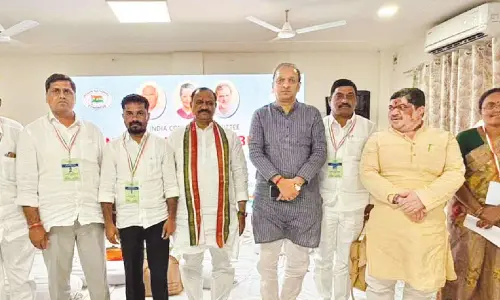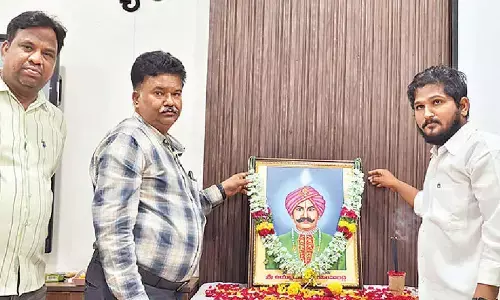Education policy: The Amma Medium vs Mummy Medium

State govt GOs Vs International convention obligations
Hyderabad: Can a State government convert all the Amma (Telugu) Medium Schools into Mummy (English) Medium Schools? Does it have legal grounding to do it by issuing an executive order in the form of a government order?
These questions arose in the wake of two case studies of earlier the Andhra Pradesh and now the Telangana governments pursuing a proactive policy of establishing by converting all the Telugu medium schools into English medium schools.
According to the experts, education is the subject matter of the concurrent list of the constitution, over which both the State and the Central governments are empowered to make policies.
However, can a State formulate an education policy incongruent with any policy made on the same subject by the Centre. That needed an answer given the Andhra Pradesh and Telangana State conversion of all Telugu medium schools into English medium schools.
Secondly, the Union Education Minister claims that a long consultation process of six years was followed before bringing NEP-2020 to replace the previous policy announced in 1986 and modified in 1992.
Further, the UMoE claimed that the NEP-2020 consultation process from January 2015, includes about lakh suggestions from 2.5 lakh Gram Panchayats, 6,600 Blocks, 6000 ULBs, and 676 districts.
Contrary to this the State's pursuit of conversion of all Telugu schools into English schools by issuing a GO without observing any consultation process of the stakeholders.
Third, India is a signatory State to the
Convention for the Safeguarding of the Intangible Cultural Heritage gained force on April 20, 2006. India ratified the convention on September 9, 2005, by the then government at the Centre.
Further, India was also the party to the Convention of the Protection and Promotion of the Diversity of Cultural Expressions of October 20, 2005. It was also ratified on December 15, 2006.
India, including all states, has convention obligations of the above two.
The Telugu language of the people of Andhra Pradesh and Telangana inherently contains intangible knowledge expressions. Besides, being recognised as the classical language, Telugu has constituted part of the cultural heritage of people for about 3000 years. Can the Telugu States and their governments initiate any policies by issuing a GO, that pertinently is in conflict with the obligation of the two conventions to which India is a signatory?











